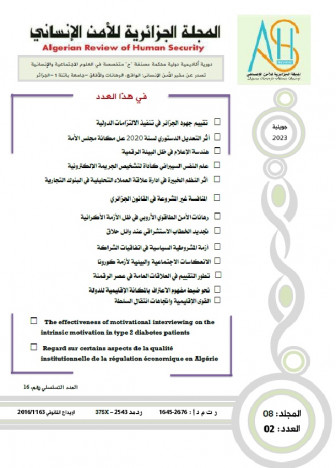Responsibility during protection and its role in promoting the principle of responsibility to protect
DOI:
https://doi.org/10.59791/arhs.v6i1.878Keywords:
Responsibility For Protection, Sovereignty, Military Intervention, Protection Of Civilians, Responsibility During ProtectionAbstract
The internationalization of human rights through international conventions and agreements was intended to consecrate human protection and achieve its contents, especially after the protection of these rights became one of the basic objectives of the United Nations. At the end of the last century, in the absence of an international consensus on the legitimacy of humanitarian intervention, especially with the existence of international practices of military intervention to stop mass crimes and atrocities, which were authorized by the United Nations as happened in Iraq, and morally justified as happened in Kosovo, From the point of view of international law, it constitutes a violation of its rules due to the violations associated with the implementation of this intervention in one way or another. In the light of these drawbacks, a new principle framing humanitarian intervention, known as the “responsibility to protect” principle, which based on specific pillars and its implementation depends on the standards set by the International Commission on Intervention and State Sovereignty (ICISS),It was adopted by the international community as part of the 2005 World Summit Outcome, but the challenge faced by this principle in its application to the Libyan crisis was almost overwhelming, necessitating its correction and enrichment.




